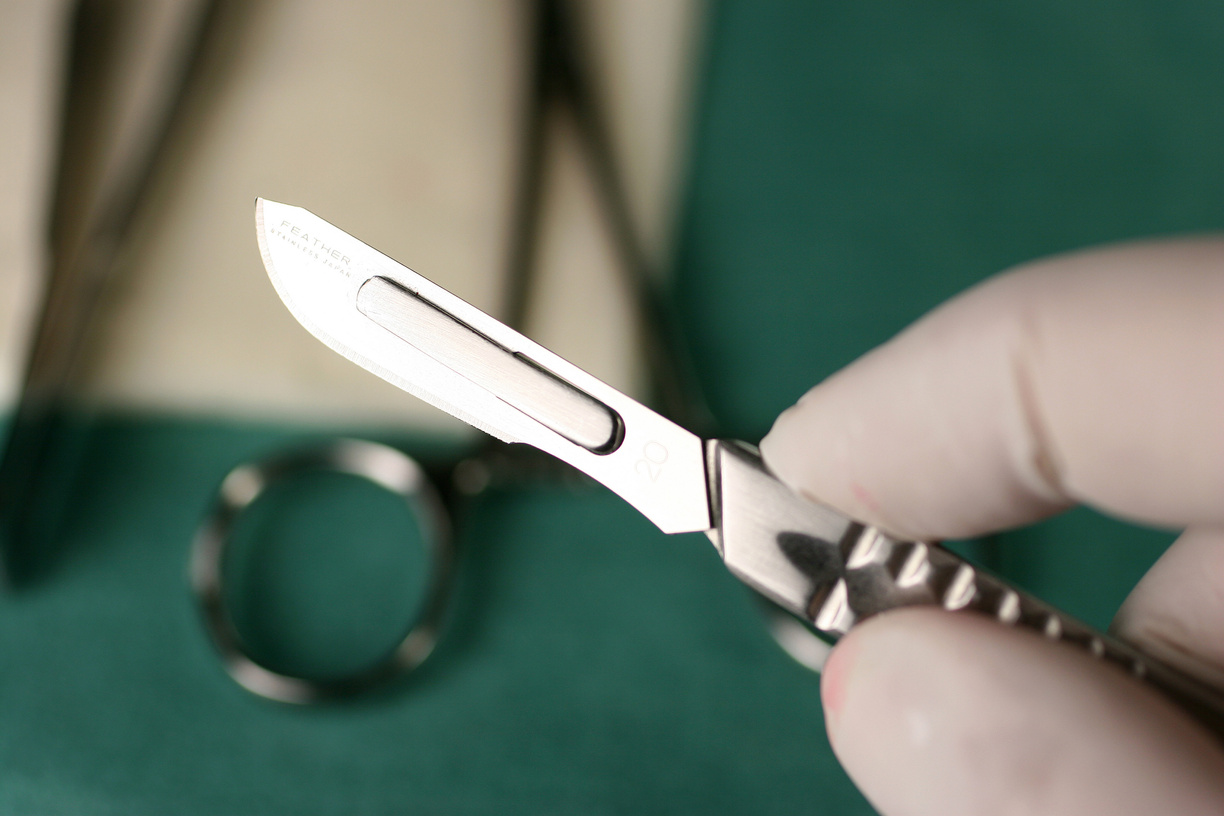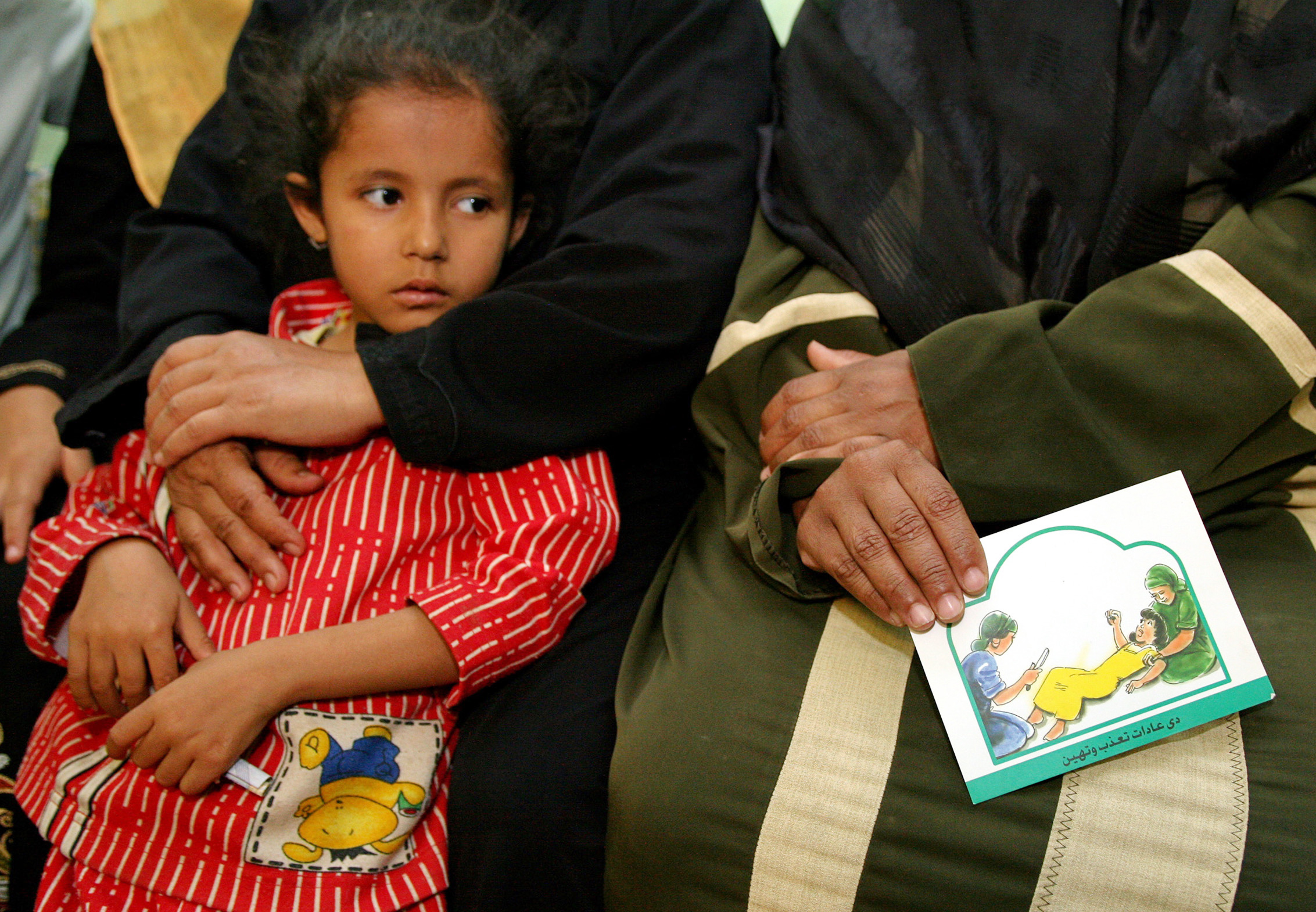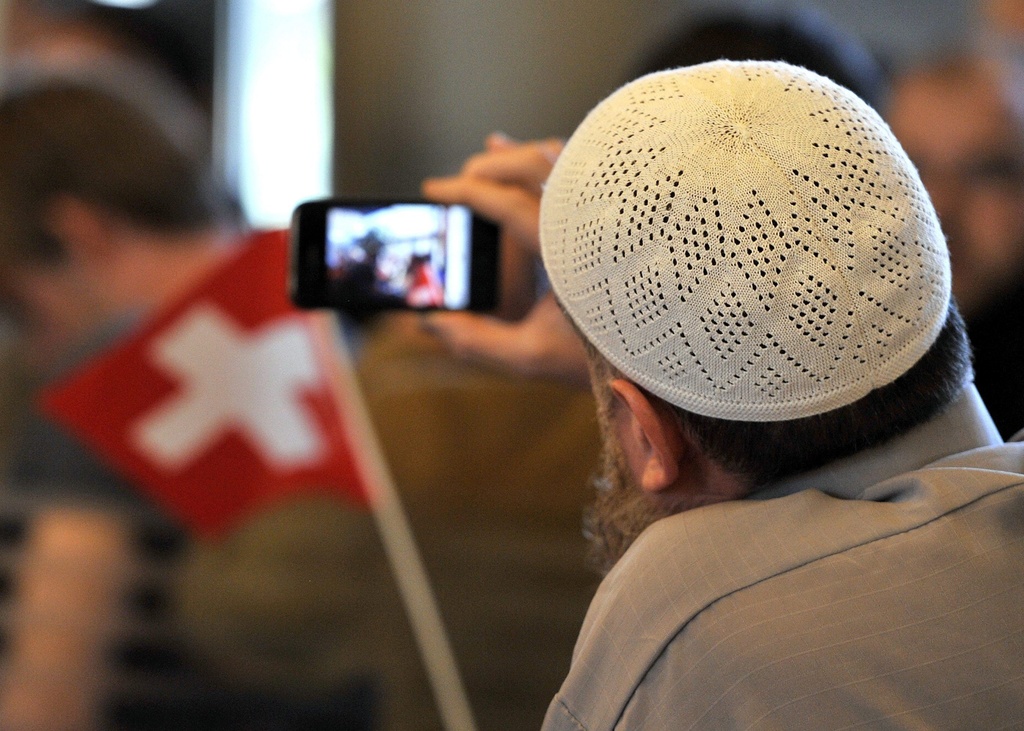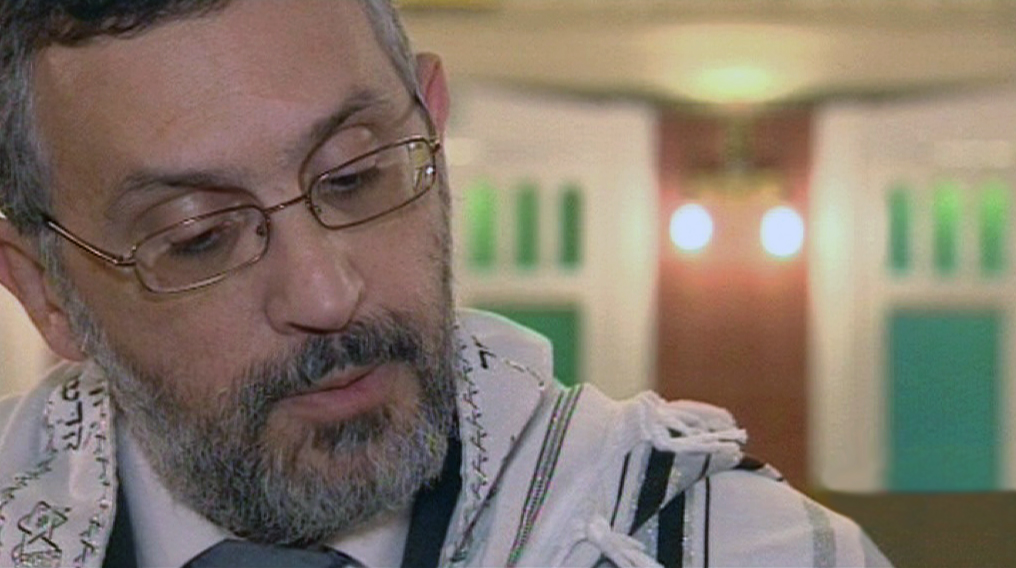Swiss legal experts divided over circumcision

Moves by two Swiss hospitals to suspend the practice of circumcising boys in the wake of an adverse court ruling about the procedure in Germany have sparked heated debate amongst legal experts in Switzerland.
The children’s hospitals of Zurich and St Gallen announced they had suspended the practice after the Cologne district court ruled last month that circumcision for religious purposes amounted to willful bodily harm which could be punishable under criminal law.
“We only carry out one or two circumcisions for religious reasons per month, so we can very well take the time to evaluate the situation and to take a decision,” a spokesperson for Zurich Children’s Hospital said, adding that circumcisions for medical reasons were not affected by the moratorium.
“We are evaluating the legal situation in Switzerland, but also the ethical aspects. There are, for example, complicated situations where the mother of a child wants the circumcision but the father does not.”
Religious groups in Switzerland, including Jews and Muslims for whom circumcision is a religious ritual, and Christian churches, have condemned the decision by the hospitals as an attack on religious freedom.
Marcel Niggli, professor of criminal law at Fribourg University told swissinfo.ch the two hospitals had “overreacted”, and questioned why they were acting in response to a ruling in Germany which had no legal implications in Switzerland.
He said that although Swiss and German laws were similar in that they are based on the principle that medical procedures do not constitute inflicted injury when they are carried out to better a person’s health, “a court decision in Germany is not more important [to Switzerland] than one in China or Argentina”.
But professor Martin Killias, a criminologist at Zurich University, said the German ruling was simply a “point of ignition” for a debate which had been brewing for some time. He said the hospitals had “absolutely” taken the right decision in suspending the practice of circumcision.
“I think they are opening a debate and there are obviously several points to be considered,” Killias told swissinfo.ch. “Beyond criminal law, it simply asks the question whether hospitals want to do that? I could imagine that hospitals could say that according to our view this is against our ethical standards in medicine.”
Health benefits?
Although circumcision is traditionally practised as part of a religious ritual, several studies undertaken in recent years suggest that the practice could have health benefits too.
The World Health Organization says there is “compelling” evidence to suggest that male circumcision reduces the risk of heterosexually acquired HIV infection in men by 60 per cent and is promoting the scale-up of male adult circumcision programmes for HIV prevention in Africa (see sidebar).
“You can show from research done that circumcision betters the health of the person concerned, they have lower risk of contracting or transmitting specific diseases,” said Niggli. “It is not endangering life and this is also what makes the difference with female circumcision.”
He said that if you ruled that medical circumcision amounted to inflicting injury for purposes which did not improve a person’s health, then the same could be argued in the case of cosmetic surgery procedures.
“I find it rather strange that you can do whatever you want as long as it does not have a religious element,” Niggli said.
But Killias said that: “It is up to the patient to decide what he considers an improvement and aesthetical operations can also have direct [positive] psychological impacts, so I think in these circumstances, I don’t see why this [cosmetic surgery] could be problematic in terms of criminal law.”
Competing rights
Killias said although he was not a medical expert, the question of health justifications for circumcision was “controversial”. He said the key point in the debate is that the child is not able to decide for himself if he wants to undergo the procedure for either religious or aesthetic reasons.
“If circumcision was practised at the age of 16 when young people are considered mature in terms of religious self-determination, nobody would debate about it,” he said. “But if it is done with young children, I see that there is obviously a conflict between the rights of the child and the freedom of religion of the parents.”
Niggli argued that as parents, people have both the right and the obligation to act in the best interests in their child, in which case they can take the decision of circumcision on behalf of the child “because circumcision is a small thing, it’s not anything endangering life and you can show that statistically, this betters the health situation”.
As to questions of religious freedom, Killias said history had shown that beliefs within the different religions had evolved and changed over the generations, and so they should be encouraged to do on the question of circumcision as well.
“Democratic and open societies have a right to impose certain values and we do that also in other respects,” he said. “We are more and more outlawing the physical punishment of children and for me, it is hardly acceptable that it should be a criminal offence to slash a child but no problem at all to disfigure its sexual organs forever.”
Ruling in the case of a Muslim boy taken to a doctor with bleeding after circumcision, the district court of Cologne said the practice inflicts bodily harm and should not be carried out on young boys but could be practiced on older males who give their consent.
German politicians and religious leaders of all colours immediately called on the government to legislate to ensure that circumcision for religious reasons could be practiced in the country without the fear of punishment. A spokesman for German Chancellor Angela Merkel said the government would move quickly to allay fears created by the court’s ruling.
“For everyone in the government it is absolutely clear that we want to have Jewish and Muslim religious life in Germany,” said Merkel’s spokesman Steffen Seibert. “Circumcision carried out in a responsible manner must be possible in this country without punishment.”
Following the court ruling in June, hospitals in both Switzerland and Austria moved to suspend the practice pending evaluation of legal and ethical considerations.
Jewish religious practice requires boys to be circumcised from eight days old. For Jews, the practice is considered a commandment from God.
In Islam, circumcision is widely practiced although at what age varies among the different branches of the religion. It is attributed to the teachings of both the Prophets Abraham and Mohammed although it is not mentioned in the Qur’an.
Medical male circumcision reduces the risk of female-to-male sexual transmission of HIV by approximately 60%.
Since 2007, WHO and UNAids have recommended voluntary medical male circumcision as an additional important strategy for HIV prevention, particularly in settings with high HIV prevalence and low levels of male circumcision. 14 countries in eastern and southern Africa have initiated programmes to expand male circumcision.
Medical male circumcision saves costs by averting new HIV infections and reducing the number of people needing HIV treatment and care.
Medical male circumcision provides men life-long partial protection against HIV as well as other sexually transmitted infections. It should always be considered as part of a comprehensive HIV prevention package of services and be used in conjunction with other methods of prevention.
(With input from agencies)

In compliance with the JTI standards
More: SWI swissinfo.ch certified by the Journalism Trust Initiative




You can find an overview of ongoing debates with our journalists here. Please join us!
If you want to start a conversation about a topic raised in this article or want to report factual errors, email us at english@swissinfo.ch.